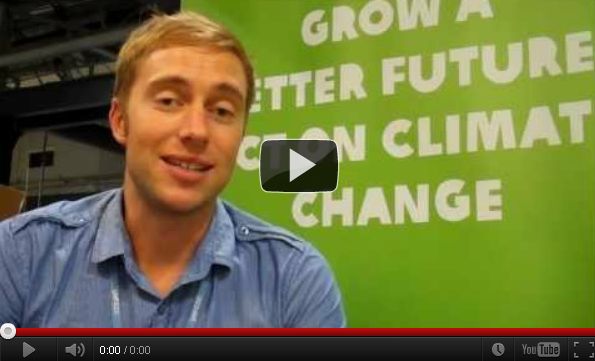This year’s UN climate negotiations in Durban are now entering the final stages. Heads of State and Ministers are giving short sharp speeches. Ambassadors and senior diplomats are discussing bottom lines and compromises. Environment groups are following the twists and turns, planning their next moves.
Against the backdrop of the current food crisis in East Africa in which 13 million are facing hunger, it is hoped that governments will agree to slash emissions and unlock much needed finance to assist poor people, especially those involved in food production, deal with climate change.
With less than two days left, this is looking less and less likely, though the final outcome is far from known. The question on everyone’s lips, is whether this round of negotiations will deliver an outcome that ensures poor people in Africa avoid the worst impacts of climate change?
One of the possible outcomes is that the global community builds on existing legal agreements by keeping the Kyoto Protocol alive and setting out a roadmap to a new legally binding agreement. A 2020 timeline has been pushed by the US and China however this is inadequate.
This outcome is unlikely to lead to a concrete plan to reduce the ‘emissions gap’, the gap between what the world has pledged to do and what it needs to do, in order to reach the below 2 degree target. As reported in my previous blog, the world is currently careering off the road to reach the below 2 degree target. The destination, without a change in course, looks like a catastrophic 3.5 degrees of warming. This would put further pressure on poor people, particularly those involved in food production.
Today 117 countries from the European Union, Least Developed Countries and Alliance of Small Island States announced a united position behind a legally binding agreement starting in 2015. Though it is too early to know the exact details it does place increased pressure on the US in particular, and China and India who have at times, been blocking progress here. If this coalition of ambition is able to draw China and India into their fold, then the US could be isolated.
The Green Climate Fund is the other piece of the negotiation puzzle here in Durban. Currently an empty shell, it needs governments to commit to provide funds. Yesterday, Germany and Denmark pledged 40 and 14 million dollars respectively to the fund. However, the world has committed to raise 100 billion per year by 2020. As the world watches the European economic crisis unfold, calls for new ways to raise climate finance such as a levy on shipping emissions and financial transaction tax are making headway.
For the millions of people who are vulnerable to impacts of climate change in Africa, and around the world, tomorrow must deliver an outcome that sets out a concrete plan to reduce emissions and provide finance to assist people adapt and mitigate to the impacts of climate change.
Clancy Moore is blogging from the UN Climate Summit in Durban, South Africa (November 28 – December 9) as part of Oxfam’s UN Climate Tracker project.



